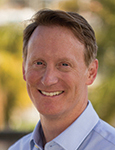
It took longer than expected, but only by a couple weeks. PCEA is now the owner of a number of publications, websites, educational events and trade shows for printed circuit engineers.
In January, we completed the acquisition of several longtime and popular brands from UP Media Group, including PCD&F, CIRCUITS ASSEMBLY, the PCB2Day webinar series, the Printed Circuit University online education platform, the PCB Chat podcast series, and of course, the leading technical conferences and trade shows for design engineers: PCB West and PCB East. It’s the latter one I’ll look at today.
Last month’s discussion focused on training opportunities. We looked at developments at the college level and new certification programs like the Printed Circuit Engineering Professional course offered by PCE-EDU, the brainchild of a team of veteran design engineers led by Mike Creeden and Rick Hartley.
This month, we dive into the upcoming PCB East technical conference. For the uninitiated, PCB East is the Eastern US version of the popular PCB West trade show. It debuted in the 2000s, then went on hiatus after the industry downturn in 2007-08. At the urging of several companies and individual design engineers, it was set to return last year, until the pandemic got in the way.
Now planned for Apr. 11-13 in Marlborough, MA, a Boston suburb, PCB East (pcbeast.com) features almost 40 hours of classes over its three days. Speakers include a who’s who of electronics design, ranging from Rick Hartley and Susy Webb to newer names like Tomas Chester and Zachariah Peterson.
What sets PCB East and PCB West apart from other technical conferences is the depth of its tutorials. These are not to be confused with “paper” conferences, where speakers present 20-minute recaps of research investigations and product pitches. To be sure, those events are important and necessary.
But the genesis of PCB East and PCB West, which takes place in Santa Clara, CA, in October, is the emphasis on longer-form training. Of the 18 classes offered, all but three are at least two hours in length, giving the presenter and attendees ample time to dive into the subject at hand.
That goes for the free sessions, too. We are excited to offer a full day’s worth of complimentary classes. Topics range from flex circuits – led by Mark Finstad and Nick Koop, co-chairs of the IPC flex circuit subcommittee – to “The 21 Most Common Design Errors Caught by Fabrication (and How to Prevent Them),” one of the most popular classes we’ve ever offered, featuring the always entertaining team of Ray Fugitt and Dave Hoover.
Making its debut at PCB East is “Proper PCB Layout – DDR2, 3, 4, etc.,” a free new class from Rick Hartley. “The majority of today’s digital systems utilize DDR memory,” Hartley says. “The advantages are many, mostly that we get twice the amount of information transfer per given ‘clock frequency.’ More data transfer without increased signal integrity or EMI risk: Fabulous! Over the years, guidelines and rules have been developed, attempting to ensure DDR bus structures function as intended. Unfortunately, many rules are overly conservative and require excessive restrictions in PCB layout, adding time and cost to PCB design. Worse, these restrictions can add layers and cost to the PCB itself.”
Hartley’s presentation will focus on identifying reasonable rules and guidelines, and proper PCB layout concepts to ensure DDR structures function as intended without adding extra time or cost to the project.
Other new classes this year look at best practices for hardware IP reuse from PCEA chairman Stephen Chavez; high-frequency PCB design by Zachariah Peterson; circuit design and layout from Tomas Chester; and material decision-making from Mike Creeden.
Gene Weiner, fresh off a trip to Europe where he visited several emerging companies, will keynote the conference. His talk, “From Possibility to Reality,” will paint a picture of exciting possibilities in additive manufacturing, components, Type 6 and 7 solder pastes, and other developments that may be in full swing in the next few years.
PCB East also offers a trade show featuring leading suppliers of software, printed circuit boards and related products and services. That takes place Apr. 12, and if for nothing else, come for the happy hour and catch up with old and new friends.
Finally, it’s last call for abstracts for PCB West, the industry’s largest conference for printed circuit design and engineering. Submit your idea here: https://pcbwest.com/abstract-submission-guidelines.
MIKE BUETOW is president of the Printed Circuit Engineering Association (pcea.net); This email address is being protected from spambots. You need JavaScript enabled to view it.. Over his three decades in the electronics industry, he has edited several publications, developed standards for design and assembly, and was director of communications for IPC.












